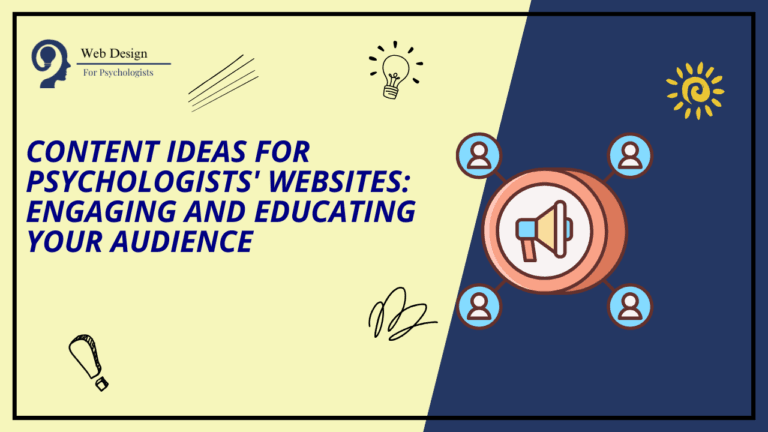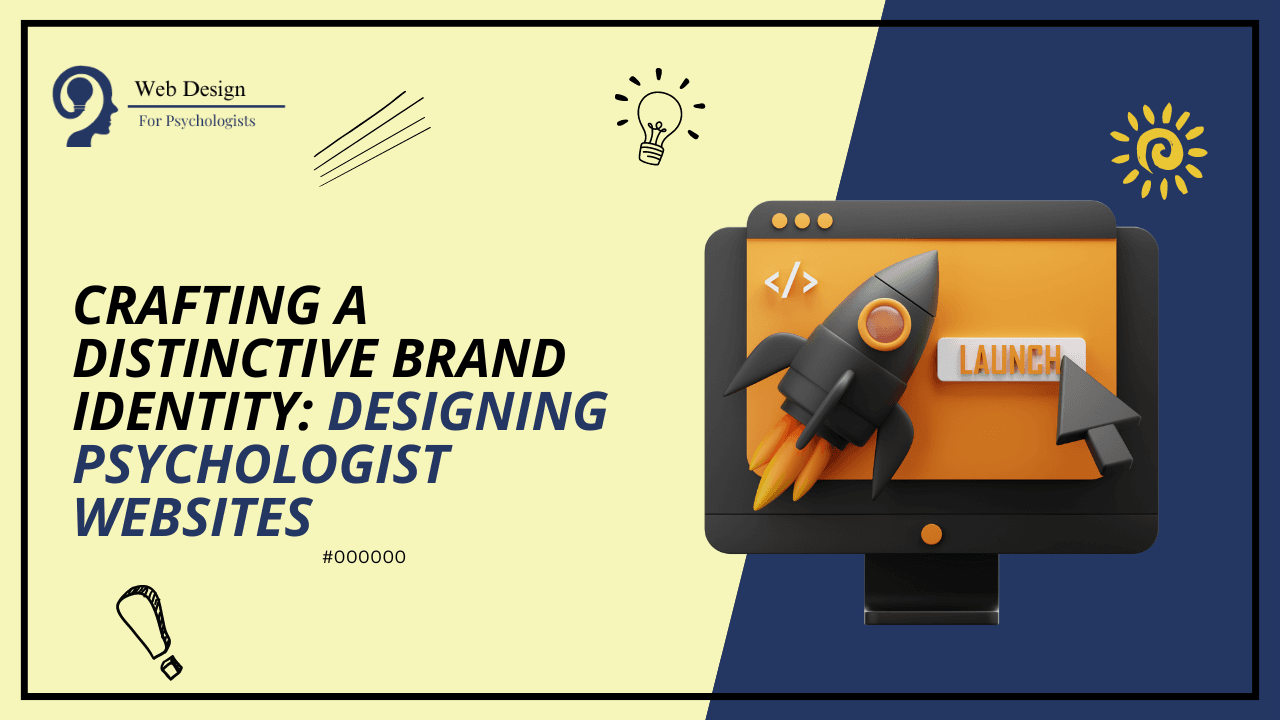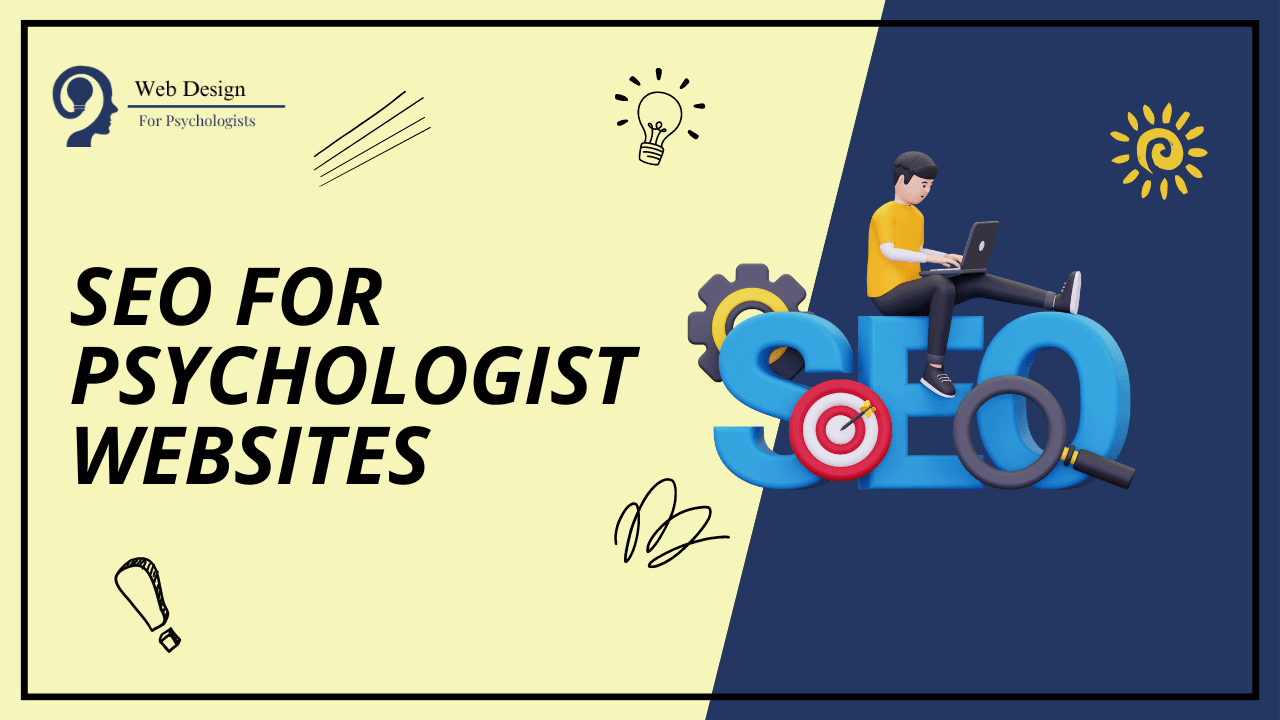In the digital age, a psychologist’s website is more than just an online business card; it’s a dynamic platform that can educate, engage, and build trust with both current and potential clients. As mental health awareness continues to grow, so does the demand for accessible information and resources. By incorporating diverse content types into your website strategy, you can enhance user engagement while positioning yourself as a thought leader in psychology. This article explores effective content ideas for psychologists‘ websites, focusing on educational videos and webinars as well as case studies and success stories.
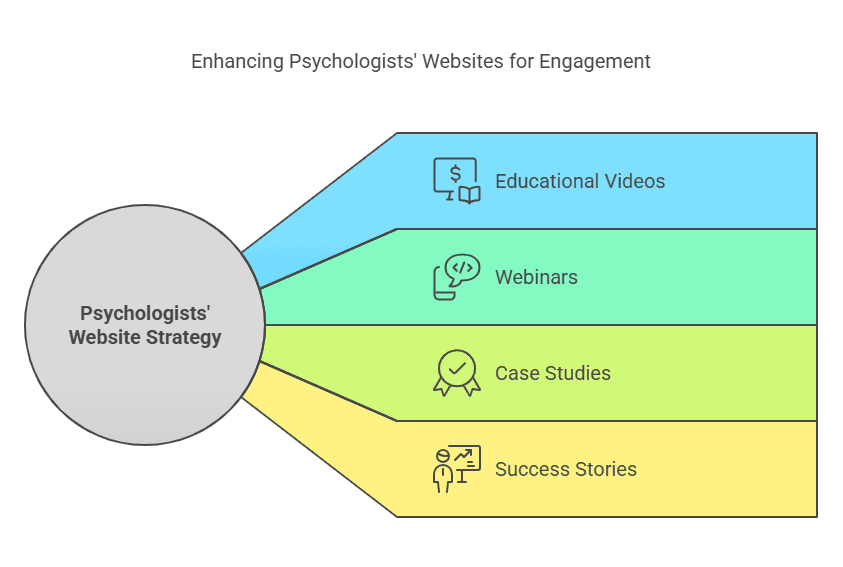
Educational Videos and Webinars
The Power of Visual Learning
Visual content has become an essential component of effective communication in today’s fast-paced digital world. For psychologists, educational videos and webinars offer unique opportunities to demystify complex psychological concepts, making them accessible to a broader audience.
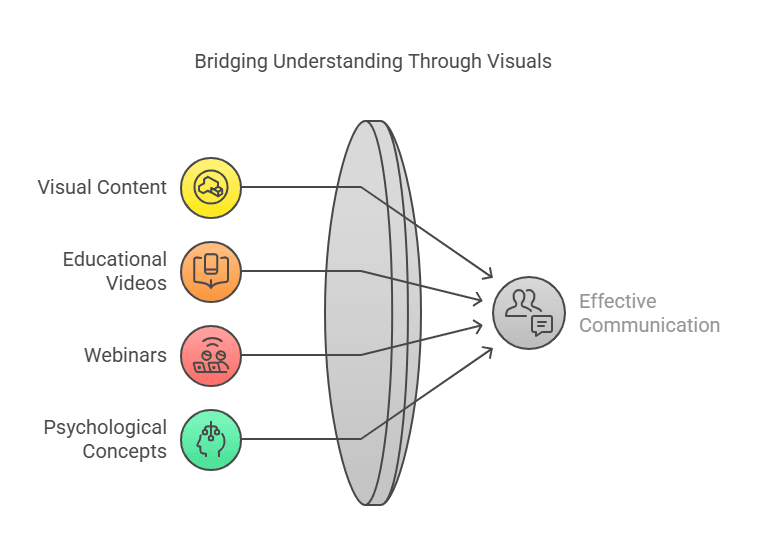
1. Explaining Psychological Concepts
Develop short video series that explain common mental health issues such as anxiety disorders, depression, or PTSD.
Use animations or infographics to simplify these topics for better understanding.
Address myths and misconceptions about mental health through engaging visuals.
2. Demonstrating Therapeutic Techniques
Create instructional videos showcasing therapeutic techniques like cognitive-behavioral therapy (CBT), mindfulness exercises, or art therapy.
Provide step-by-step guides so viewers can practice these techniques at home safely.
3. Interactive Webinars
Host live webinars on trending psychology topics where participants can engage directly through Q&A sessions.
Offer deep dives into specific areas of interest suggested by your audience—such as coping strategies during stressful times or improving emotional intelligence.
4. Collaborations with Experts
Invite guest experts from related fields—like nutritionists discussing the gut-brain connection—to co-host webinars.
This approach offers diverse perspectives enriching your audience’s understanding of holistic wellness approaches.
By incorporating educational videos and interactive webinars into your website strategy, you not only provide valuable information but also create an engaging learning environment that fosters community interaction.
Case Studies and Success Stories
Building Trust Through Real-Life Examples
Case studies and success stories are powerful tools for demonstrating the effectiveness of psychological interventions. They provide tangible evidence showing how professional guidance leads to meaningful change in individuals’ lives.
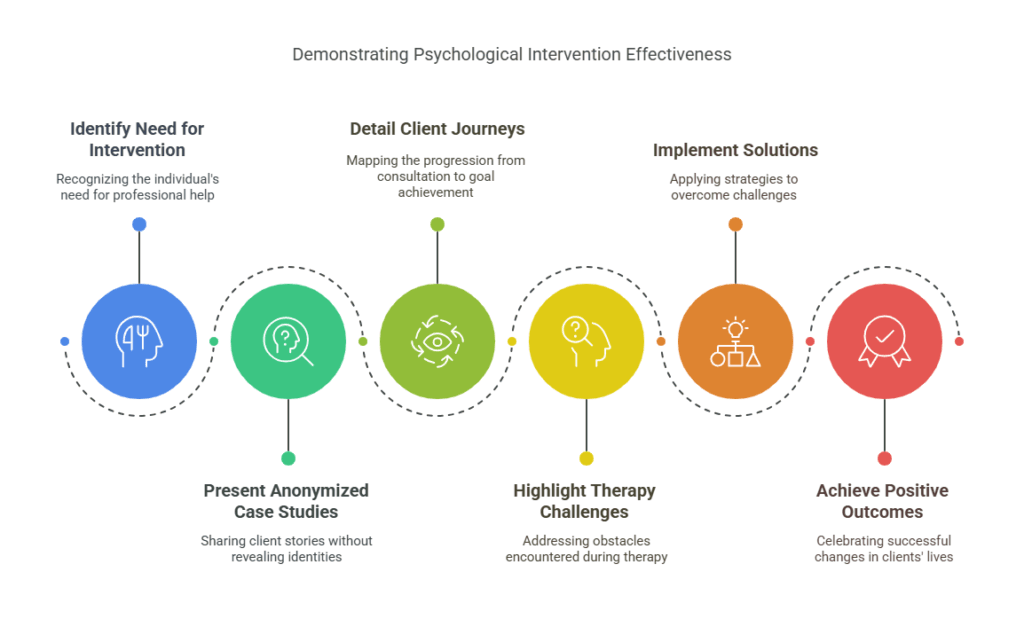
1. Detailed Case Studies
Present anonymized case studies detailing client journeys from initial consultation through treatment progressions toward achieving collaboratively set goals.
Highlight challenges faced during therapy sessions along with solutions implemented successfully leading towards positive outcomes.
2. Success Stories Featuring Client Testimonials
Share testimonials from clients who have experienced significant improvements under your care (with their consent).
These narratives humanize the therapeutic process by illustrating real-world applications resulting in life-changing transformations.
3. Before-and-After Scenarios
Illustrate transformation visually using graphs/charts depicting measurable changes over time such as reduced anxiety levels post-treatment compared against baseline measurements taken initially.
4 .Overcoming Common Obstacles
Write articles based around overcoming common obstacles encountered within various demographics e.g., teenagers dealing specifically w/social media pressures etc., providing relatable context readers may identify personally w/themselves/friends/family members alike.
5 .Inspirational Journeys
Focus occasionally upon inspirational journeys undertaken either individually/group settings whereby resilience/adaptability shown despite adversity faced encourages others similarly struggling find hope/motivation persevere onward too!
Through sharing authentic experiences via detailed cases/successful outcomes achieved previously documented elsewhere already perhaps even potentially inspiring further inquiries/bookings made thereafter subsequently following suit likewise eventually hopefully ultimately benefiting everyone involved positively overall long-term ideally speaking anyway naturally enough hopefully indeed fingers crossed!
Conclusion
Incorporating diverse content ideas into your psychologist’s website can significantly enhance its effectiveness as a tool for education, engagement, and trust-building. Educational videos and webinars allow you to break down complex psychological concepts into digestible formats while offering interactive opportunities for audience participation. These visual mediums not only make learning more accessible but also position you as an approachable expert in the field.
Meanwhile, case studies and success stories provide real-world evidence of the transformative power of psychological interventions. By sharing anonymized client journeys and testimonials, you build credibility and demonstrate your commitment to helping individuals achieve positive outcomes.
Ultimately, a well-rounded content strategy that includes these elements will help attract new clients, retain existing ones, and establish your practice as a reputable source of mental health information. As the demand for online resources continues to grow, embracing these content ideas will ensure that your website remains a valuable asset in promoting mental wellness within your community.

